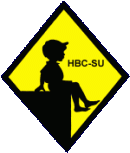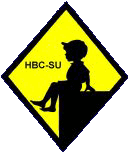
Figure 1.--. |

|
We had 'Music and Movement' lessons at my primary school. This was broadcast by BBC schools radio from the 1940s through to the 70s. The other time we got out of the classroom was for “Music and Movement” which was broadcast on the radio by the BBC. This involved moving to music as instucted by the broadcaster – always a woman with a typical BBC plummy accent that,as I got older, I found patronising – but then the broadcasts were aimed at all ages. I never recall any formal dance lessons--as indicated the emphasis was more on "movement".
Moving to music is a cultural phenomenon common to all people. It appears to to be an inate or inheriited characteristic. It is natural foreven
very most young children to want to move with music. While most pre-school children are too young for formal dance classes, they and younger primary children can benefit from a kind of informal dance program. We have noted such
promgrams in America and Britain. We have very limited information at this time, but we know that in the 1940s during World War II that BBC had
an entire Schools Music Department. We do not know when this Department was founded or a great deal about its productions. The BBC schools radio. "Music And Movement" was used by both classroom teachers and P.E. teachers.
We have few detaiols on whp produced the program or when they first began broadcasting it. One HBC reader remembers it in the 1960s. We believe it probably began earlier, perhaps the 1950s. We also have few details atvthis time on the music and exervises.
These lessons always took place in the school hall, as seems to be the case here as few schools had a gym. As you point out we always took off our shoes and socks to save the floor from damage. This was the same for gym lessons.
The classes were run by your ordinary class teachers they would rely on the radio broadcast to provide the stimulus. Both sate and private schools took advantage of these broadcasts.
This involved moving to music as instucted by the broadcaster – always a woman with a typical BBC plummy accent that,as I got older, I found patronising – but then the broadcasts were aimed at all ages.
One scenario I remember was that you'd start off being an “acorn” all hunched up as small as possible on the floor and then gradually “grow” into a “big tall oak tree” standing on tiptoe and stretching out your arms as instructed by the plummy voice and the tinkling piano music. As I said – I always found this a bit patronising and often got into trouble for not taking it seriously enough – especially when you then bacame a “leaf” on the tree and
fluttered back down to the floor. Other set-ups would be “walking against the wind” or “lifting a heavy weight”. The broadcast might ask one pupil to be chosen to show in body language "defiance" or "pride" or something and the rest "accusation". Then the programme would ask the teacher to change the scene - here perhaps to the boy trying to escape the crowd or something. Sometimes music would be used to provide the stimulus.
For me this was not movement at all as it involved staying in the same spot – the broadcasts always began with the radio voice saying “Find your own
space ...” and then you were stuck there for the next 20 minutes or so “growing” or “fluttering” or something. The music was also irritating. I preferred P.E., even when it was indoors as you could move about more.
At least we didn't have Music and Movement every week as different classes took it in turns to use the school hall - even though we'd mix in two classes for the lessons we'd only get it every three weeks or so.The two class teachers would normally take the opportunity to stand on the side chatting while the
radio voice droned on.
When I was in the top class I always felt a fool in these lessons – especially as it was with both my own class teacher and the one who had been my class teacher the year before. Surely they could see that we were too old for this now?
Navigate the Boys' Historical Clothing Web Site:
[Introduction]
[Activities]
[Biographies]
[Chronology]
[Clothing styles]
[Countries]
[Bibliographies]
[Contributions]
[FAQs]
[Glossary]
[Satellite sites]
[Tools]
[Boys' Clothing Home]
